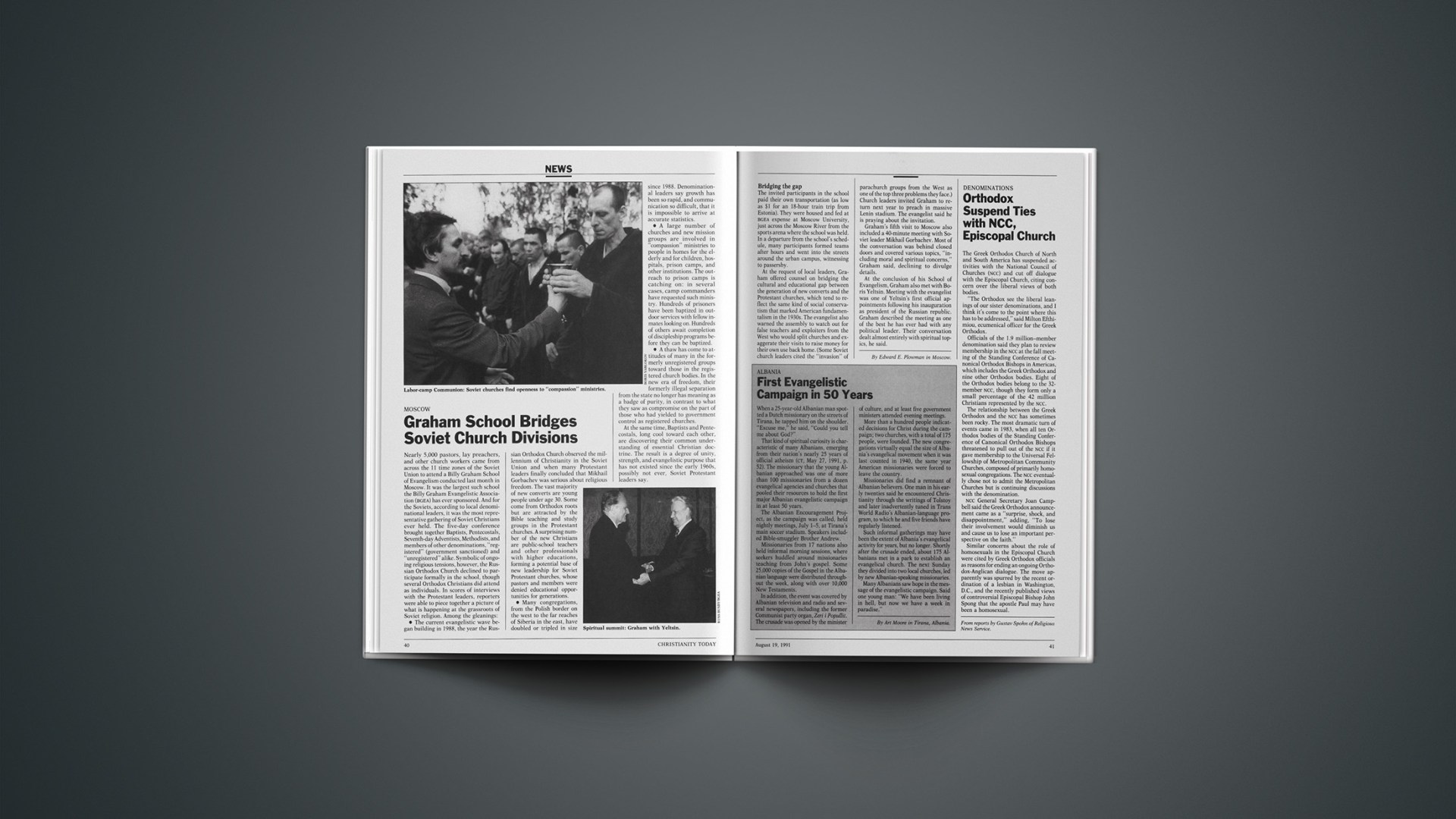The Greek Orthodox Church of North and South America has suspended activities with the National Council of Churches (NCC) and cut off dialogue with the Episcopal Church, citing concern over the liberal views of both bodies.
“The Orthodox see the liberal leanings of our sister denominations, and I think it’s come to the point where this has to be addressed,” said Milton Efthimiou, ecumenical officer for the Greek Orthodox.
Officials of the 1.9 million-member denomination said they plan to review membership in the NCC at the fall meeting of the Standing Conference of Canonical Orthodox Bishops in Americas, which includes the Greek Orthodox and nine other Orthodox bodies. Eight of the Orthodox bodies belong to the 32-member NCC, though they form only a small percentage of the 42 million Christians represented by the NCC.
The relationship between the Greek Orthodox and the NCC has sometimes been rocky. The most dramatic turn of events came in 1983, when all ten Orthodox bodies of the Standing Conference of Canonical Orthodox Bishops threatened to pull out of the NCC if it gave membership to the Universal Fellowship of Metropolitan Community Churches, composed of primarily homosexual congregations. The NCC eventually chose not to admit the Metropolitan Churches but is continuing discussions with the denomination.
NCC General Secretary Joan Campbell said the Greek Orthodox announcement came as a “surprise, shock, and disappointment,” adding, “To lose their involvement would diminish us and cause us to lose an important perspective on the faith.”
Similar concerns about the role of homosexuals in the Episcopal Church were cited by Greek Orthodox officials as reasons for ending an ongoing Orthodox-Anglican dialogue. The move apparently was spurred by the recent ordination of a lesbian in Washington, D.C., and the recently published views of controversial Episcopal Bishop John Spong that the apostle Paul may have been a homosexual.
From reports by Gustav Spohn of Religious News Service.










